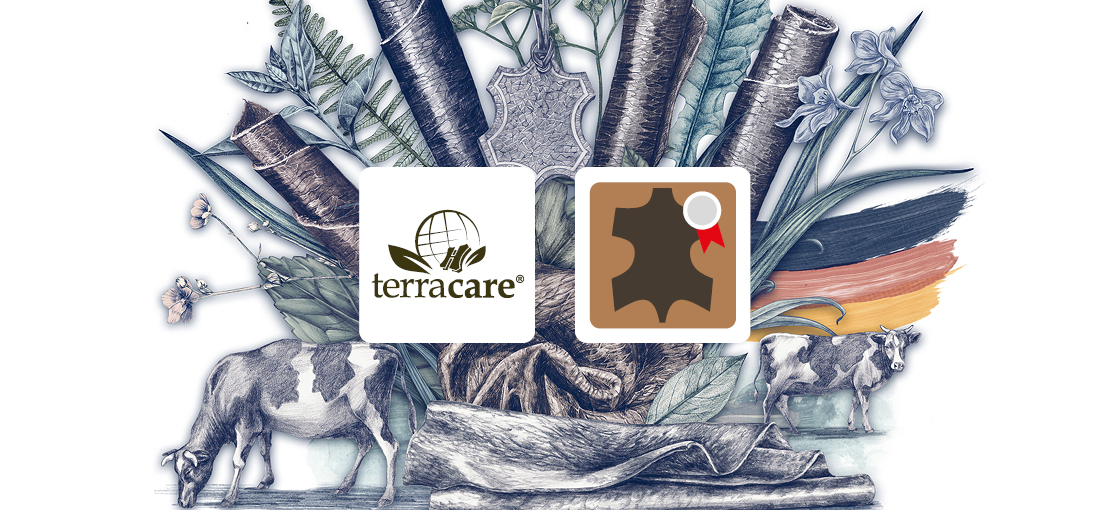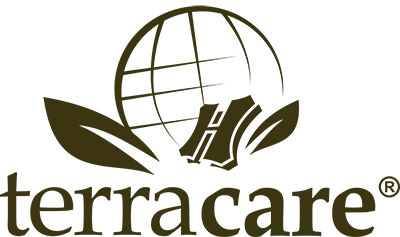
Genuinely good. Genuine leather from Germany.
Animal protection and chemicals under control
We primarily use terracare® leather from German bullhide for your VAUDE products. This natural product is produced in Germany under strict environmental regulations. This leather guarantees natural comfort coupled with resource conserving and environmentally friendly manufacturing.
Renewable resources and waste products
VAUDE uses leathers for some shoe models and backpacks. Leather is a highly functional natural product, a "renewable resource" that is biodegradable. In addition to its excellent technical properties, leather is also very ecologically efficient because it is a by-product of the food industry.
Green Shape Certified Leather - Movie:
Animal protection as a voluntary commitment
However, like any industry, leather production also has its downside. Animal husbandry globally has unfortunately not always held the values that correspond to our understanding of animal welfare. Particularly in South America, land competition is a big problem - when, for example, tropical rain forests are cut down to provide pastures for cattle. Chemicals used in the tanning of leather that can be detrimental to the workers in the tannery, can also be found in the final product.
VAUDE has a clear commitment: we want to know where the leather in our products comes from and the conditions under which it is processed. Animal welfare, conservation and safe handling of chemicals are a priority for us.

Cowhide leather from Northern Germany
VAUDE uses terracare® exclusively for its shoes and bags. Our supplier for shoe leather is a western German family-run business that takes its responsibility for people and nature very seriously.
The raw materials for terracare® leather come exclusively from animals on registered farms in Northern Germany. The animals are transported gently over short distances to the slaughterhouse. The hides are left practically unpreserved as they travel to the tannery thanks to the short distances, which saves the environment from large amounts of salt.
Only safe chemicals
For every kilogram of raw hide, the tannery needs about 500 grams chemical additives for tanning. After production, these substances can be found either in the leather or in wastewater. Clearly, absolute care has to be taken here and only safe chemicals used to prevent harm to people or the planet.
You can’t tell how a piece of leather was produced and what substances were used just by looking at it. The formation of the particularly hazardous chemical chromium VI is excluded in terracare® leathers.
Tannery with water, sewage and energy management
Conventional tanneries need up to 450 liters of water to tan one square meter of leather. Terracare® leather only needs 95 liters of water per square meter and can thus save a considerable amount of water.
When producing Terracare®, Heinen not only avoids unnecessary water consumption, but also cleans and recycles process water. Before the wastewater from terracare® goes to the municipal sewage treatment plant for biological cleaning, it is cleaned mechanically and chemically in an on-site sewage treatment plant. After that, the water is allowed into the natural water cycle – as clean as it was before use.
The energy required for the production of terracare® leather is obtained by an on-site thermal power station: generators use natural gas to produce electricity. The energy required for the production of terracare® leather is obtained by an on-site thermal power station: generators use natural gas to produce electricity. 50 % of the needed power is produced onsite. The remaining 50 % is purchased as green electricity.
No wastage of by-products
Terracare® uses 99 % of the hide and its by-products.
Climate neutral leather production in Germany
As a special highlight, Heinen (our supplier) compensates for the amount of greenhouse gases produced during the production of the leather for VAUDE shoes.
For example, 6 tons of CO2 were bound in 2019in the KIKONDA FOREST RESERVE climate reforestation project in Uganda. You can view the certificate here.
Find out more about VAUDE’s carbon footprint here.
VAUDE also converted to German suppliers for its goatskin leather which is used for gloves in the Summer Collection 2017: Firma Gerecke.




